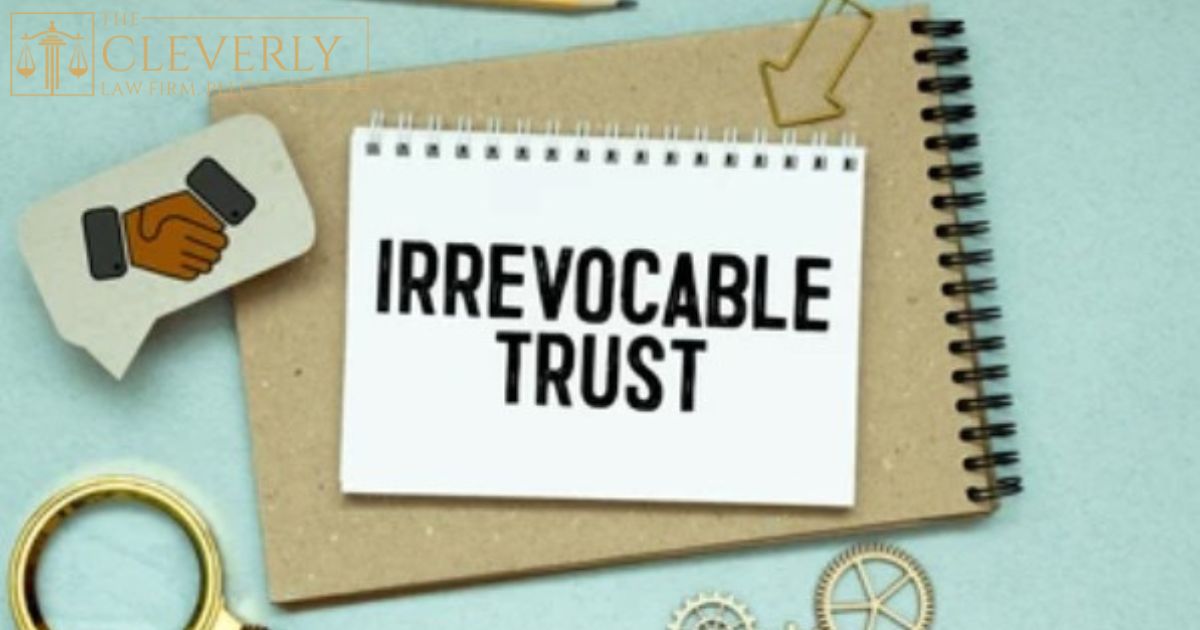What Does an Estate Planning Attorney Do?

Estate planning can seem complicated and even a little intimidating at first. But at its core, it’s simply the process of preparing for the management and distribution of your assets after you pass away or if you become incapacitated. It’s a way to ensure that your wishes are carried out and your loved ones are provided for.
As estate planning attorneys, we’re here to guide you through this process, offering legal advice and crafting the documents that will make your vision a reality. Let’s take a closer look at the role we play.
The Primary Responsibilities of an Estate Planning Attorney
Our main goal as estate planning attorneys is to help you create a comprehensive plan that protects your assets, minimizes taxes, and ensures your wishes are followed. Here are some of the key ways we do that:
Drafting Essential Documents
We’ll work with you to draft a range of essential estate planning documents, including:
- Wills: This document specifies how you want your assets distributed after your death. We’ll ensure it’s legally valid and clearly reflects your wishes.
- Trusts: Trusts can help your estate avoid probate, protect assets, and give you more control over how and when your assets are distributed. We’ll advise you on whether a trust makes sense for your situation.
- Powers of Attorney: These documents allow you to appoint someone to manage your financial and legal affairs if you become incapacitated.
- Healthcare Directives: Also known as living wills, these documents outline your wishes for medical care if you’re unable to communicate them yourself.
Providing Strategic Advice
Estate planning involves a lot of important decisions, like choosing your beneficiaries, selecting an executor for your will, and deciding whether to create a trust. We’ll provide guidance on these choices, helping you weigh your options and make informed decisions.
Navigating Tax Laws
We’re well-versed in the state and federal tax laws that impact estates, including gift and estate tax thresholds. We’ll help you develop strategies to minimize the tax burden on your estate, ensuring more of your assets go to your loved ones rather than the government.
Guiding You Through Probate
If your estate does need to go through probate (the legal process of distributing your assets after death), we’ll be there to guide your executor and beneficiaries through every step. Our goal is to make the process as smooth and efficient as possible.
Wills and Trusts: Key Components of an Estate Plan
Two of the most important tools in an estate planning attorney’s toolkit are wills and trusts. While both help you direct how your assets will be managed and distributed, they serve different purposes.
Wills: The Foundation of Your Plan
A will is the cornerstone of most estate plans. It’s a legally binding document that specifies:
- Who will receive your assets after your death (your beneficiaries)
- Who will be responsible for carrying out your wishes (your executor)
- Who will take care of your minor children (your appointed guardian)
We’ll help you draft a will that clearly articulates your wishes and meets all Texas legal requirements. For example, under Texas law (Texas Estate Code §251), a will must be in writing, signed by the testator (the person making the will), and attested to by two witnesses.
Trusts: For More Control and Privacy
While a will is essential, trusts offer some additional benefits. When you create a trust, you transfer ownership of certain assets to the trust itself. The designated trustee then manages those assets on behalf of your beneficiaries.
Trusts can be useful for:
- Avoiding probate: Assets in a trust can be distributed to beneficiaries without going through probate, which can be a lengthy and public process.
- Protecting assets: Certain types of trusts can shield assets from creditors, lawsuits, and even estate taxes.
- Controlling distribution: Trusts give you more control over how and when your assets are distributed. For example, you could specify that a child receives their inheritance in stages rather than all at once.
We’ll help you determine whether a trust makes sense for your situation and guide you through the process of creating and funding one.
Navigating Texas Estate Codes
Estate planning is governed by a complex web of state and federal laws. These laws dictate everything from how a will must be executed to how much an estate can pass tax-free. Here are a few key laws we navigate:
Intestacy Laws
If someone dies without a valid will (known as dying “intestate”), Texas law (Texas Estate Code §201) dictates how their assets will be distributed. Generally, the assets will go to the closest relatives in a specified order. An estate planning attorney can help ensure your assets are distributed according to your wishes, not the state’s default plan.
Estate and Gift Tax Thresholds
Both federal and state governments can tax the transfer of assets, either at death (estate tax) or during life (gift tax). As of 2024, the federal estate tax exemption is $13.61 million per individual. Texas itself does not have a state estate tax or inheritance tax. We’ll help you navigate these thresholds and develop strategies to minimize the tax burden on your estate.
Medicaid Eligibility and Long-Term Care Planning
For many seniors, planning for potential long-term care needs is a key part of estate planning. We can help you understand how Medicaid eligibility works in Texas and develop a plan to protect your assets while ensuring you can access the care you need.
The Estate Planning Process: What to Expect
Now that you understand the key components of an estate plan, let’s walk through what the process of creating one typically looks like:
- Initial Consultation: We’ll start with a meeting to discuss your unique situation, your assets, your family dynamics, and your goals for your estate.
- Information Gathering: We’ll ask you to provide information about your assets, debts, and beneficiaries. This helps us get a full picture of your estate.
- Plan Design: Based on your situation and goals, we’ll recommend a plan that may include a will, one or more trusts, powers of attorney, and healthcare directives.
- Document Drafting: We’ll prepare the necessary legal documents, ensuring they’re clear, legally valid, and reflect your wishes.
- Review and Execution: We’ll meet with you to review the documents, answer any questions, and oversee the proper signing and execution.
- Asset Transfers: If your plan includes a trust, we’ll guide you through the process of transferring assets into the trust.
- Regular Review: We recommend revisiting your estate plan periodically, especially after major life events like marriages, divorces, births, or significant changes in your assets.
When to Seek the Help of an Estate Planning Attorney
Many people assume they don’t need an estate plan until they’re older or have accumulated significant wealth. However, there are many situations where it’s wise to seek the counsel of an estate planning attorney:
- You’re getting married or divorced
- You have children, especially minor children
- You’ve started a business
- You’ve received an inheritance or windfall
- You’re concerned about the cost of long-term care
- You want to minimize taxes or avoid probate
- You have philanthropic goals and want to plan for charitable giving
Essentially, if you have assets you care about and people you want to protect, it’s never too early to start estate planning.
Choosing the Right Estate Planning Attorney
Estate planning is a deeply personal process. You’re not just sharing financial details; you’re articulating your values, your hopes for your legacy. So, it’s important to choose an attorney you feel comfortable with.
When evaluating potential estate planning attorneys, consider:
- Their experience: Look for an attorney who focuses on estate planning and has experience with situations like yours.
- Their approach: Do they take a cookie-cutter approach, or do they tailor their recommendations to your unique needs?
- Their communication style: Are they able to explain complex legal concepts in a way you understand?
- Their fees: Are they transparent about their billing practices?
At the Cleverly Law Firm, we pride ourselves on our personalized, client-centric approach. We take the time to understand your unique situation and craft a plan that truly reflects your wishes.
FAQs About Working with an Estate Planning Attorney
How much does estate planning cost?
The cost of estate planning can vary significantly depending on the complexity of your situation and the specific tools used. We offer transparent, upfront pricing and will work with you to create a plan that fits your budget.
How long does the estate planning process take?
The timeline can vary, but in most cases, we can have your plan in place within a few weeks to a couple of months. The most important step is to get started.
What documents should I bring to my first meeting?
It’s helpful if you can provide a general overview of your assets, debts, and beneficiaries. But don’t worry if you don’t have everything gathered – we’ll guide you through the information-gathering process.
How often should I update my estate plan?
We recommend reviewing your plan every 3-5 years or sooner if you experience a major life change like a marriage, divorce, birth of a child, or significant change in your assets.
What happens if I don’t have an estate plan?
If you pass away without a valid estate plan, Texas intestacy laws will dictate how your assets are distributed. Your assets will likely need to go through probate, which can be a lengthy and public process. Your loved ones may be left without clear guidance, leading to confusion, disputes, and unintended outcomes. An estate plan helps ensure your wishes are followed, and your loved ones are protected.
Take the First Step in Securing Your Legacy
Estate planning isn’t about death – it’s about life. It’s about ensuring that the legacy you’ve built over your lifetime continues to support and nurture the people and causes you care about most.
At Cleverly Law Firm, we’re here to guide you through this profound and empowering process. We’ll take the time to understand your unique situation, your values, and your vision for the future. Then, we’ll craft a personalized plan to make that vision a reality.
Don’t leave your legacy to chance. Contact Cleverly Law Firm today to schedule a consultation and take the first step in securing your family’s future.





